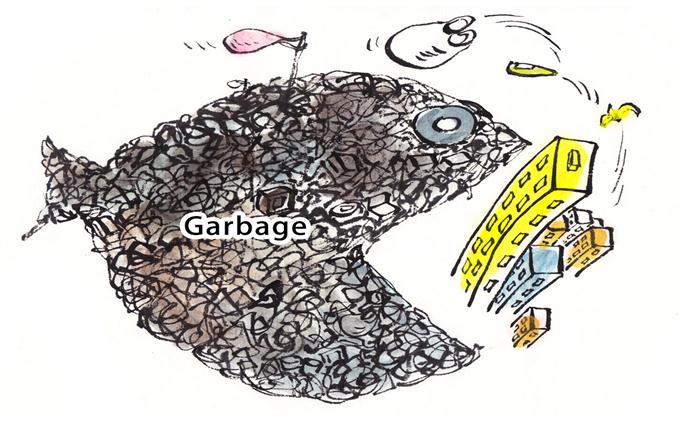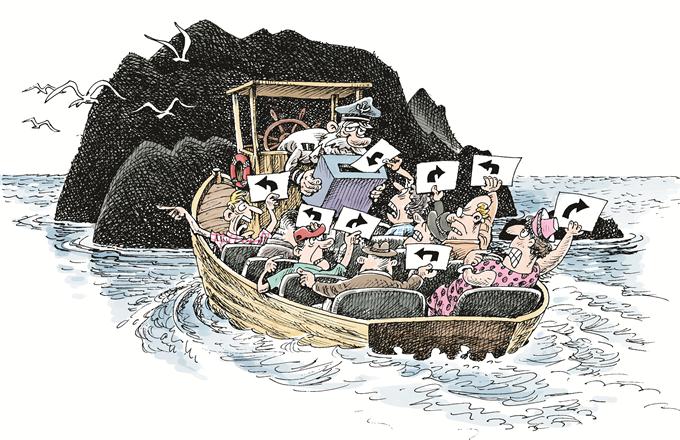Why Western media turns a blind eye to biological diversity meeting?
 |
|
Medical staff listen to a doctor during a drill simulating an unconventional weapons attack, at Haemek hospital in the northern Israeli city of Afula November 30, 2011. [Photo/Agencies] |
The 13th Conference of the Parties to the Convention on Biological Diversity held through Saturday here is obviously not the Western media's cup of tea.
"Do you come from China? There is only a few correspondents left on the meeting, and the experts are all willing to be interviewed," a conference volunteer said with a smile.
It was late Saturday night when participants from over 190 countries or regions were still locking in hot debates on details of the meeting's topics.
In contrast, few Western correspondents showed up during the conference, and news reports from them could be hardly found on the internet.
But the situation was quite different from those UN functions focusing on environment and climate changes.
At the 1992 UN Conference on Environment and Development in Rio de Janeiro of Brazil, participants from over 150 countries drew up the UN Framework Convention on Climate Change (UNFCCC). They also signed the Convention on Biological Diversity.
However, both as events to promote sustainable development, the conferences on climate change had drawn much more enthusiasm than the latter from the West, with almost all heavyweights of media running flooded coverage.
Why so? Experts participating the conference gave some hints.
Moustafa Fouda, a biological diversity consultant of the Egyptian Ministry of Environment, told Xinhua that generally speaking, developing countries are rich in biological diversity resources that developed countries rely on. They do not focus on the topic because they would not like to pay more for their benefits.
Nermalie Lita, an official in the Philippines' Department of Environment and Natural Resources, echoed Fouda that the abundant natural resources in the developing countries have been excessively exploited which deteriorated the biological diversity there.
Lita stressed that developed countries need to compensate the developing countries and shoulder more responsibilities of environmental protection.
Luis Guzman, an analyst at the Reprogenetics said the biological environment belongs to all human beings rather than a specific nation. He underlined that the developed and the developing countries should share the responsibility to protect it and the Western media should pay more attention to reporting the conference.
Xu Jing, an expert in the Chinese Research Academy of Environmental Sciences, pointed out that the number of the parties signed the Convention on Biological Diversity has exceeded 190, but the United States is not included.
Xu noted that to join the convention will increase the international burden of the United States. It is also not in the interest of some U.S. bio-technology enterprises, because the convention will limit the industry development and companies also need to share their benefits with others in exploiting the biological diversity resources.
The conference participants believed a harmonious biological environment is in the common interests of the 7 billion people on the globe. To raise the environmental protection awareness of everyone and for the benefits of the future generations, the world including the global media should make active efforts jointly.
- Compensation dispute between Guangxi-based Fenghao Sugar Group Co, Ltd, Yu Xianqiang, Lei Yunqing, Lu Liuzhong, Laibin City-based Mingxin Industrial Co, Ltd, Guangxi Pingxiang City-based Fengyuan Biological Fertilizer Co, Ltd, Guangxi-based Botang Warehouse Co, Ltd, Guangxi-based Haoxin Warehouse Co, Ltd and Beidahuang Potato Group Co, Ltd
- Biological clock predicts life expectancy: study
- Woman returns to China 22 years later seeking biological parents
- Sichuan Xinlvsheng Biological Engineering & Technology Co
























